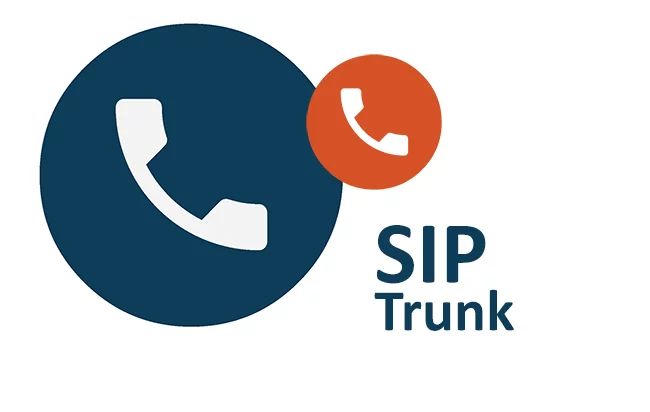Comparing Legal Case Tracking Systems: What to Know
In the legal profession, efficient case management is critical for success. As law firms grow and the complexity of cases increases, many are turning to legal case tracking system to help streamline their operations. However, with numerous options available on the market, choosing the right system can be overwhelming. This article will compare various legal case tracking systems, highlighting key features, benefits, and considerations to help you make an informed decision.
What is a Legal Case Tracking System?
A legal case tracking system is software designed to assist law firms in managing their cases more effectively. These systems centralize critical information, enabling legal professionals to track case progress, manage deadlines, and store documents efficiently. By integrating various functionalities into one platform, a legal case tracking system helps firms operate more efficiently and improves overall client service.
Key Features to Look For
When comparing legal case tracking systems, it’s essential to consider the features that will best meet the needs of your firm. Here are some key features to look for:
1. Case Management
The core function of any legal case tracking system is case management. Look for a system that allows you to create, organize, and manage cases easily. Key functionalities include:
- Case Status Tracking: Monitor the status of each case, including deadlines and milestones.
- Task Management: Assign tasks to team members and track their progress.
2. Document Management
A robust document management feature is critical for any law firm. Ensure that the system allows you to store, organize, and access case documents securely. Look for features such as:
- Version Control: Track changes to documents and maintain a history of revisions.
- Document Sharing: Easily share documents with team members and clients.
3. Communication Tools
Effective communication is vital in legal practice. A good legal case tracking system should include built-in communication tools that simplify interactions among team members and clients, such as:
- Internal Messaging: Facilitate quick communication between team members without leaving the platform.
- Client Portals: Offer clients a secure space to view case updates, documents, and communicate with their attorneys.
4. Reporting and Analytics
Data analytics capabilities are essential for understanding your firm’s performance and identifying areas for improvement. Look for systems that provide:
- Performance Metrics: Track billable hours, case outcomes, and client satisfaction levels.
- Custom Reports: Generate reports tailored to your specific needs, providing insights for strategic decisions.
5. Integration Capabilities
Your legal case tracking system should integrate seamlessly with other tools your firm uses, such as billing software, document management systems, and email platforms. This connectivity enhances overall efficiency and reduces the need for duplicate data entry.
6. Customization and Scalability
Every law firm is unique, and your case tracking system should reflect that. Look for solutions that offer customization options to tailor the software to your specific needs. Additionally, choose a scalable solution that can grow with your firm as your case load increases.
Popular Legal Case Tracking Systems
Here are some of the most popular legal case tracking systems available, along with their key features and benefits:
1. Clio
Clio is a widely used legal practice management software that offers a comprehensive legal case tracking system.
- Key Features: Case management, document management, time tracking, billing, and client communication tools.
- Benefits: Clio is known for its user-friendly interface and robust integration capabilities with other legal tools.
2. MyCase
MyCase is another popular option that provides a complete legal case tracking solution.
- Key Features: Case management, document storage, billing, and a client portal for communication.
- Benefits: MyCase offers excellent customer support and is designed for easy collaboration among team members.
3. PracticePanther
PracticePanther is a cloud-based legal case tracking system that simplifies case management.
- Key Features: Task management, billing, client communication, and document management.
- Benefits: The platform is highly customizable and offers automation features that save time on routine tasks.
4. Rocket Matter
Rocket Matter combines legal case tracking with billing and project management features.
- Key Features: Case management, time tracking, billing, and document management.
- Benefits: Its focus on both case management and billing makes it a comprehensive solution for law firms.
5. Zola Suite
Zola Suite offers a robust legal case tracking system with a focus on accounting and billing.
- Key Features: Case management, document management, email integration, and built-in accounting.
- Benefits: Zola Suite is ideal for firms that require strong accounting features alongside case management.
6. WorkForce Sync
WorkForce Sync is designed to enhance productivity and streamline case management in legal practices.
- Key Features: Time tracking, project management, client communication, and task assignment.
- Benefits: WorkForce Sync is particularly beneficial for firms looking to improve team collaboration and efficiency through comprehensive management tools.
Considerations for Choosing a Legal Case Tracking System
When selecting a legal case tracking system, consider the following factors:
1. Assess Your Firm’s Needs
Before exploring options, assess your firm’s specific needs. Consider factors such as the size of your firm, the number of cases you handle, and the specific features you require.
2. Research Available Options
Take the time to research various legal case tracking systems on the market. Look for reviews, testimonials, and case studies to gauge the effectiveness of each system.
3. Request Demos
Most software providers offer demos or free trials of their products. Take advantage of these opportunities to explore the system’s features and determine whether it meets your expectations.
4. Evaluate Customer Support
Reliable customer support is crucial when implementing new software. Ensure that the provider offers comprehensive support options, including training, technical assistance, and ongoing updates.
5. Consider Costs
Finally, evaluate the pricing structure of each legal case tracking system. Look for a solution that fits within your budget while providing the features and support your firm needs.
Conclusion
Choosing the right legal case tracking system is essential for enhancing your law firm’s efficiency and performance. By understanding the key features to look for and comparing popular options, you can make an informed decision that meets your firm’s unique needs. A reliable legal case tracking system not only improves organization and productivity but also enhances client satisfaction, paving the way for long-term success in your legal practice.





